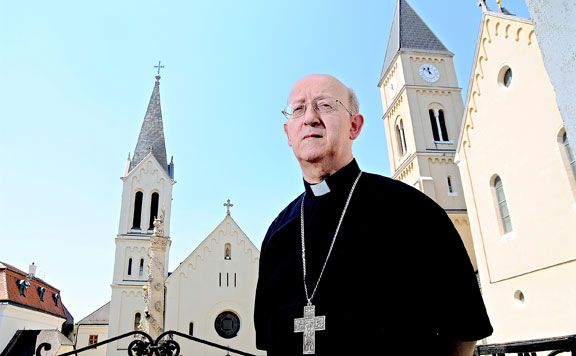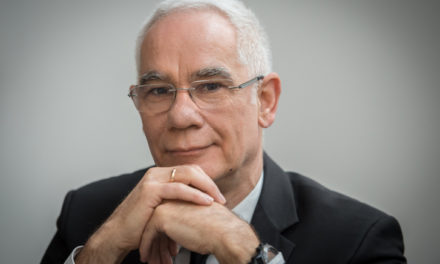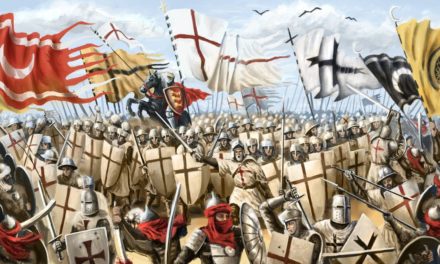Muhammad's name is found in Islam's fundamental creed, the Shahada, along with Allah's: "I bear witness that there is no God but the One True God, and Muhammad is His Messenger."
There are 91 references in the Qur'an to the fact that true believers must follow Muhammad. In many Surahs we find references to the events of the Prophet's life, but we Kafirs do not understand them very well without the knowledge of the Sunnahs (Sira and Hadith).
Muhammad came from the Hashem clan, one of the clans of the Quraysh, an important Meccan merchant tribe. This tribe was polytheistic. Among their gods, Allah was among the most prestigious: they honored the already mentioned goddesses, whose names are: al-Lat, al-Uzza and Manat, as their daughters. (Cf. K 53,19-20.)
Muhammad was born in Mecca around 570 and died in Medina in 632 at the age of 62. His original name Abul-Kasim Muhammad . He lost his father, Abdullah ("Servant of Allah"), before he was born, and his mother, Amina, when he was 5 years old. His grandfather Abd-el Mutallib took over his upbringing, but he also died 2 years later. The now triple orphan was taken care of by Abu Talib
As an adult, Muhammad became the agent of a wealthy widow named Hadijah, whose wealth he successfully increased through itinerant trade with Syria. - During the caravan trips, Muhammad became acquainted with the monotheism of the Jews and Christians and - through oral communication - with the Bible. - At the age of 40, Hadija proposed marriage to the 25-year-old Muhammad. The marriage was successful, although of their 6 children, only one daughter, Fatima, survived Muhammad.
Muhammad's visions and the revelations he received began around 610, when the prophet was 40 years old, and lasted for 22 years, until 632. The messages conveyed by the archangel Gabriel were recorded by Muhammad's scribe, ZaidibnThabit , on stones, palm leaves and animal bones. (They were edited into a book only during the time of the first caliph, Abu Bakr (632-634), the various early ones that were created in this way gained their current, final form during the time of the third caliph, Osman (644-656), approx. 20 years after the death of Muhammad .)
The Messenger of Allah in Mecca between 610-622 endangered his integrity by promoting the monotheism derived from revelations, thereby jeopardizing the traffic of the important place of pilgrimage, Mecca, and the incomes of the vendors selling religious items and those interested in the hospitality industry. In 12 years, together with his wife and scribe, approx. He had 150 believers by his side.
In the meantime, through the mediation of his followers, he became acquainted with the Arabs of Medina, who, thanks to the large number of Jews living there, sympathized with monotheism and invited Muhammad to Medina (originally known as Yathrib). The move - in Arabic: Hejra or Hijra - took place in 622. Here, the Prophet was originally on good terms with Yahweh's followers, the various Jewish tribes, but later, because the Jews did not accept him as the chief prophet (the "seal of the prophets"), their relationship deteriorated. Muhammad gradually chased them away and executed some of them. (According to some sources, 800, according to others, only 600 Jewish men were executed in a single day.)
In Medina, the monogamous prophet was transformed into a polygamous head of state and general. He had at least 12 members of his harem: 10 wives and 2 sex slaves. He regulated the daily life of his Muslim followers with strict laws: from prayer to eating, marriage and trading. Then he started spreading Islam and attacking the kafirs. Battle followed battle: with smaller failures and bigger and bigger victories. By the time of his death, he had exterminated or conquered almost all "infidels" in Arabia.
According to I 416-23, Muhammad regularly sends out armed forces to raid caravans carrying goods from Syria to Mecca. Their first major success was achieved in 624 at the Battle of Badr, when they defeated the outnumbered Quraish caravan with 300 men. The success was probably also due to the fact that the raid took place in the month of Rajab, which was the holy month of peace between the Arab tribes. Of course, Muhammad received Allah's permission for this (cf. K 2,217).
The Meccans fought back in the battle of Uhud in 625, but they could not break the power of Muhammad's Muslims either then or in 627, when they surrounded Medina, but could not take it because of the ditches dug around the city. (This is called “Trench Battle.”)
Later, Muhammad concluded the Treaty of Hudajbija with the Meccans, according to which they would not take up arms against each other for 10 years. In 630, however, the people of Medina marched against Mecca with an army of 10,000 people on the grounds that the Meccans had "broken the agreement". The Meccans did not defend themselves, so Muhammad "peacefully" took the city, cleansed it of idols, and contented himself with executing some of his opponents. In 632, he took part in a "farewell pilgrimage", delivered his farewell speech in the valley before Mount Arafat, then returned to Medina and died on June 8, 632, in the arms of his favorite wife, 18-year-old Aisa.
During his nine-year stay in Medina, Muhammad personally participated in 27 attacks. In addition, his fighters led 38 more campaigns, during which many assassinations and executions took place. On average, there was one armed action every 6 weeks. (Cf. I 973.)
If we want to evaluate Muhammad's work with a Christian eye, we must of course distance ourselves from the style of Charlie Hebdo's trash pages. We can appreciate the Messenger's virtues and positive actions. Among these, we can mention his courage, with which he promoted monotheism in a polytheistic world, taking on ridicule, criticism, and even risking his life. He never committed an abortion: he did not even allow pregnant women who had committed adultery and were sentenced to death to be executed until they gave birth and nursed their children until weaning. - He had a developed social sense, he always considered it important to support the poor. (In countries conquered by Muslims, social justice prevailed much better later, such as in the Byzantine or Persian Empires.)
At the same time, the method of spreading Islam, especially the use of armed violence and deception (takiya), the principle that "the end justifies all means" is unacceptable for the Christian and non-Muslim world in general. - Polygamy is also unacceptable to us, not to mention the fact that Muslim men were allowed a maximum of four wives, and he had at least 10 wives and 2 sex slaves. We cannot accept the cruelty that followed victorious campaigns, including the rape of captured women and their subsequent sale as slaves along with their children. – The slave trade itself cannot be accepted either (which they never considered and still do not consider to be a crime). - It is also strange that among Muslim men it was forbidden to discriminate between wives, but Muhammad preferred Aisa over his other wives.













